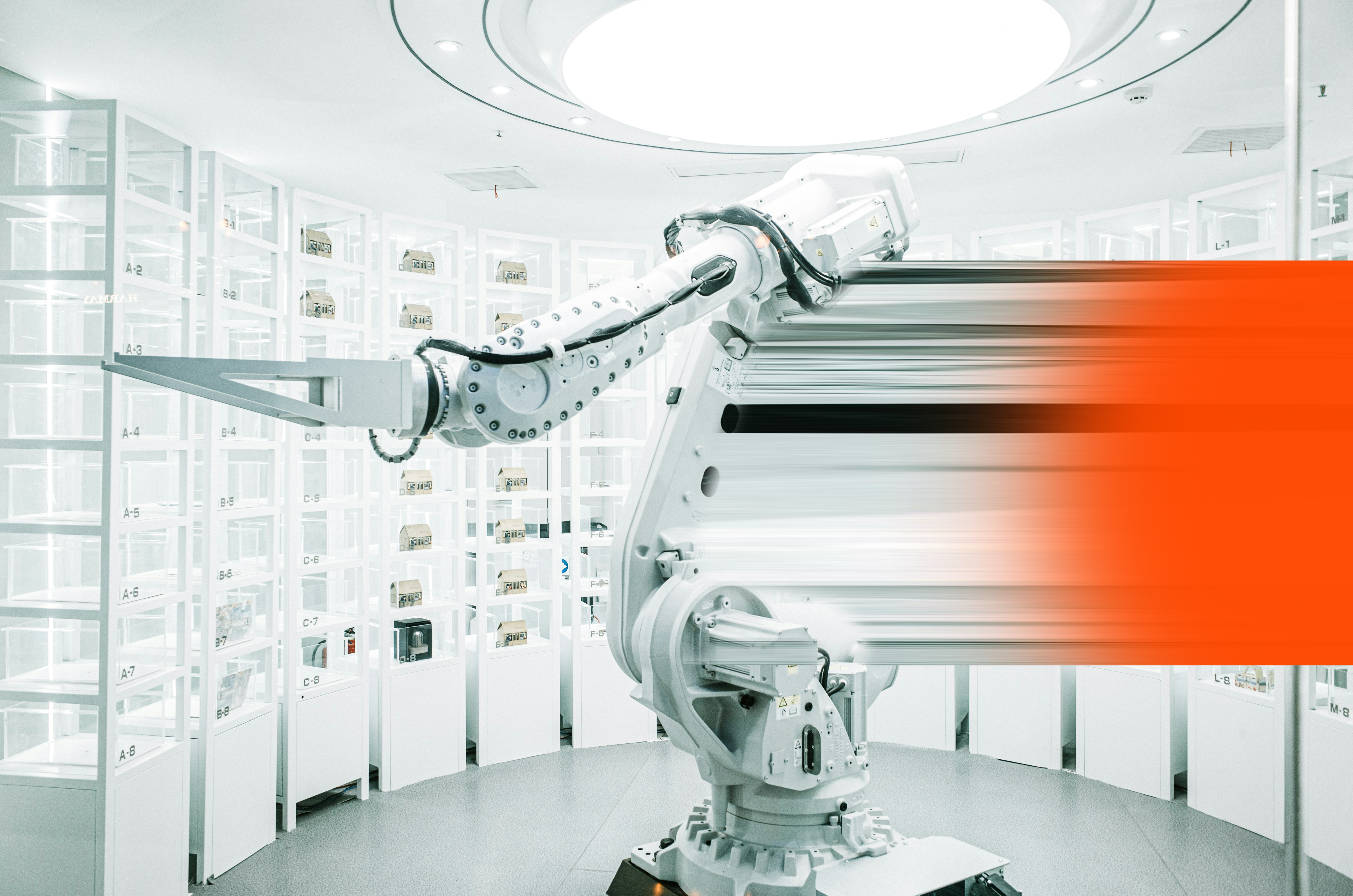Is AI only applicable within factories and large corporate organizations? Anything but. AI will (and already is) creating impact within the Human Resources branch as well. We speak with Julie Plusquin, Talent Partner at ML6 about what the evolution within HR may look like.
Julie: "I have a Master's degree in Psychology. I could have asked myself the question, 'Why continue to study about the individual, when soon algorithms will be able to read people anyway?' Well, in this article I would like to take you through my train of thought."

Some applications of AI in HR
The future of AI in the field of Human Resources looks bright, in my opinion. Of course, I don't want to be naive and I also mention certain risks involved.
Some concrete applications of AI within the HR field include: CV screening by an algorithm, mapping skills of your employees and getting certain advice from the algorithm, real-time feedback tools, and so on.
HR Analytics have also been on the rise in recent years. Companies are more often seeing the added value of a data-driven approach. As a psychologist with a strong background in evidence-based management, I love witnessing this evolution. Don't make the mistake of assuming that data and people cannot be connected. You can collect, analyze and optimize a lot of data when it comes to performance, skills, attitude, recruitment and so on. This can help an HR professional to make better future decisions.
How can these applications be useful? Use them for efficiency purposes. People today spend a lot of time on operational tasks. For example, a lot of my time is spent screening resumes, scheduling interviews and giving feedback to candidates. Some of these tasks can easily be automated. An important remark here is, "Where is your added value as a person and what are the risks associated with automating these?".
Screening a resume, for example: An algorithm will most likely be able to filter relevant education and the person's location faster than I can. But can an algorithm as well as a person nuance in this? Can it understand why someone has a 2-year gap in their CV, for example? Anyway, I prefer to engage with people to include this personal nuance. And I think that is irreplaceable. How is an algorithm going to measure whether someone is a cultural fit for the organization? You can certainly set up some pre-defined questions for this, but still don't underestimate the impact of your observations during a face-to-face interview and how someone behaves during a tour at the office. Either way, I think there will come a time when resumes will no longer be common when applying for jobs. I think the recruitment world will undergo a huge turn and (digital) development in the coming years. Thankfully.
Ethical AI
When does an AI model meet certain requirements to be able and allowed to be deployed in day-to-day use? Are there certain guidelines for that? Within the domain of Ethical AI and as well as our general legislation in the EU around the application of AI, certain guidelines are written and some are still being developed. This can mean, for example, that if AI causes harm to physical or mental wellbeing of humans, it cannot be used. Also, there are many discussions around the use of personal data and discrimination. As technology is moving forward at an ever increasing speed, regulators in this domain are also moving forward to make evolutions of the proposed regulations (EU AI Act).
Another important aspect is that of explainability. When an algorithm makes a prediction, it is important to know how the decision is made. For example: personal feedback is important to a candidate (why were you selected to go to the next round or not). And also because we must be able to measure if there is bias in it. For example, if a particular job is more commonly done by men, there might be a bias in your model against women in it.
Because HR professionals focus a lot on personal contacts, we often come into contact with sensitive data. For that very reason, we need to be critical and careful when using AI. Is there some risk that your model would discriminate against a candidate? Then this does not seem to be the ideal solution.
On the other hand, AI can also add value to counter human biases since they rely purely on the available data and not on gut feeling. But make no mistake, AI can discriminate based on limited or historical data as well. For example, if an algorithm has more data to rely on from the past of "white" people, it may view this data as the "norm," discriminating more quickly with data that differs from this.
Resistance to Change
As an organization that daily works on AI and ML projects, we also get the question from customers, "How can I start implementing AI within my organization, and how do I deal with resistance to this solution from my employees?". This concept we call "resistance to change" covers a very large domain within the literature on Change Management within organizations.
AI will continue to develop anyway, as well as in the domain of HR, and how we deal with it will largely depend on the communication and guidance of coaches in organizations. You can communicate a message in different ways. "We are experimenting with AI to let you become more efficient in your job and evaluate in which aspects you still want to grow." or "We are experimenting with AI to make our company more profitable and efficient.". You immediately notice the difference.
In addition, implementing AI in your organization offers tremendous opportunities. By talking to your employees individually, you can identify what someone is good at and where they still wish to grow. By having an operational part optimized through AI, this again brings a lot of space and opportunities to discover and learn new things. Therefore employee satisfaction and productivity will increase.
I can already hear the question coming, "But what if I perform 100% operational work today?". My answer will remain the same. I believe that AI can add value. Keep in mind that AI will replace tasks, not necessarily jobs. I strongly believe that it will also create new jobs or make the current ones more inspirational. New needs will create new labour. Plasticity and the ability to adapt will therefore be the skill needed to deal with what the future brings. In fact, this has always been the case. Have a look at Darwin's theory of "survival of the fittest”.
People versus the algorithm
The power of people versus an algorithm? The difference lies in our ability to think forward and backward. People are unique in their ability to fantasize and imagine situations and how to deal with them. This requires creativity, empathy and personal nuance.
When AI applications are implemented, it still remains important to incorporate a "human factor" into the process as control/check. Like humans, an algorithm also needs time to learn.
Within Human Resources, I think AI can take over much of operational work. On the other hand, I think it is important that the 'interpretation part' remains with us as experts. Our process of evaluating performance for example could be optimized through AI, but the interpretation of why someone has just started performing better compared to a previous period remains up to us. In my opinion, AI could just highlight the unique ability of humans even more. And isn't that the perfect example of how Human Resources could go hand in hand with AI?
At ML6, we are a high-tech AI company. But precisely because of our human approach in Human Resources, we give a clear message to our people on the one hand, and to the outside world on the other.




